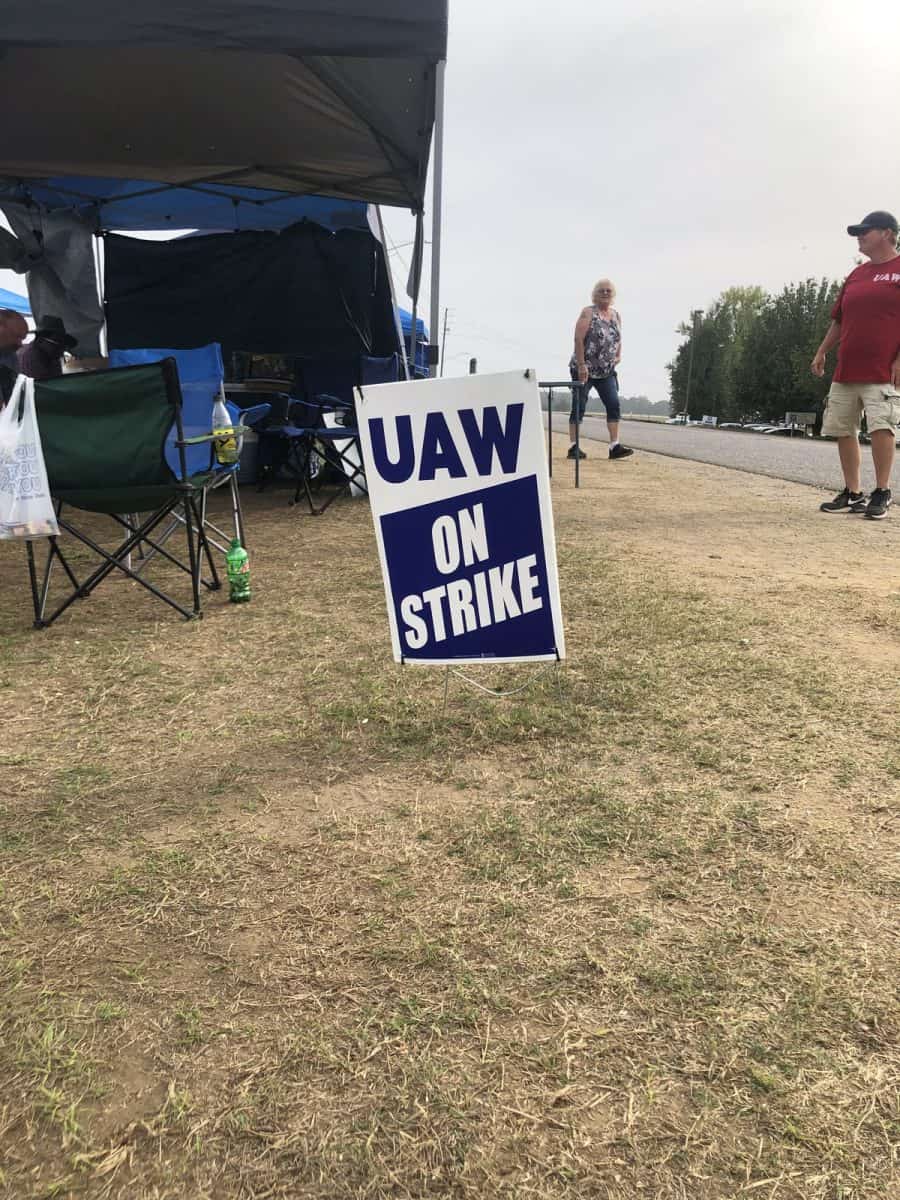2023 was one of the most important years for the labor movement in recent memory. From Amazon to Starbucks to SAG-AFTRA and the Writers Guild of America, workers across the country — and the world — took a stand for better compensation and adequate benefits.
The United Auto Workers led one of the most successful labor efforts of 2023, securing substantial benefits for workers, including more than 30% raises for many, at the “Big Three” automakers: Stellantis, Ford and General Motors. But the UAW is not finished. The union is already working to organize nonunion auto workers, including those in Alabama’s sizable auto industry.
Some 1,500 workers at the Mercedes-Benz auto plant in Vance, just east of Tuscaloosa, have already joined the union, as have over 30% of auto workers at Hyundai in Montgomery. At large, the union has secured over 10,000 new memberships since beginning its efforts to organize nonunion auto workers near the end of 2023, with the Vance plant leading the charge.
Mercedes-Benz workers currently work 10 hours a day for six days in a row with many, including recent hire Moesha Chandler, “living paycheck to paycheck.” This is in spite of the massive profits the company has raked in over the last decade, which total $156 billion, alongside 200% growth in just the last three years. Why shouldn’t the workers who generate this growth see comparable increases in their own paychecks?
The UAW’s success in 2023 is inspiring Alabamian auto workers to organize, and organize quickly. Both the Vance plant and the Hyundai workers in Montgomery have already surpassed the initial membership threshold of 30%, which means that the UAW will be organizing rallies with union leadership with the hope of convincing more workers to sign union cards.
Once a plant has reached 70% membership, workers will apply for the union to be recognized. If the company doesn’t recognize the union voluntarily (which is entirely possible, given how Mercedes has handled unionization efforts in the past), then the UAW files for a National Labor Relations Board election. And with the NLRB’s new election rules influenced by General Counsel Jennifer Abruzzo, union recognition should not be a challenge.
Unfortunately, Alabama politicians are taking this opportunity to fearmonger on behalf of corporate interests instead of backing the working Alabamians who form the backbone of the state’s economy.
Alabama’s commerce secretary Ellen McNair has claimed that the unionization drives will bring an end to Alabama’s auto industry, while Gov. Kay Ivey called UAW’s efforts an “attack” on Alabama’s “model for economic success.”
In truth, the only attack the UAW is launching is an attack on corporate greed that exploits hardworking Alabamians’ labor for exorbitant shareholder profits. If Ivey judges the state’s economic success only by the revenue its workers produce for the ultra-wealthy, and not by the livelihood of its working class, then she would be correct. Unfortunately for the governor, that is both an inaccurate conceptualization and one that lacks any moral character or compassion for the working Alabamian.
It seems hard to fathom that McNair could be correct and that the proliferation of high-paying union jobs throughout the Alabama auto industry would spell its doom. On the contrary, the good pay and benefits the UAW is looking to attain for Alabama auto workers should only attract more workers to the state.
If it is offshoring that critics like McNair and Ivey are worried about, then they could use a healthy dose of reality. The fact of the matter is that the United States cannot compete with the lower wages that corporations can find overseas or across the border — nor should we. Engaging in a race to the bottom only disenfranchises and impoverishes America’s working class by justifying excessive corporate greed.
Instead of fearing that the good jobs and adequate compensation unions bring will discourage industry leaders from remaining in Alabama, those with political power like McNair and Ivey should advocate for tax reforms that would discourage corporations from holding American wages hostage. If the state’s economy is reliant on underpaying and overworking its laborers to continue its current operations, then it is already failing.
The UAW is at the front lines of a modern renaissance in labor organization. Alabama auto workers should seize this opportunity for themselves, for their families and for the future of their industry.







